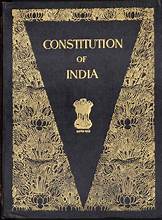Kanishka Singh, a 5th-year law student from MIT World Peace University has written this article on “Navigating the Road After Law School: How to get Bar Enrollment”
Introduction:
Congratulations on finishing your legal education! After reaching this important milestone, The process of obtaining Bar Enrollment in India is an essential step for law graduates to practice as advocates and represent clients in the courts of law. The necessary preparation and actions that must be taken in order to successfully enroll in the Bar following law school will be covered in this article.
Here are some details on each step of the process to obtain Bar Enrollment in India:
Step 1: Completion of Law Degree
In India, there are many different institutions and universities that provide law degrees. If you already hold a bachelor’s degree in any field, you can enroll in a three-year LL.B. programme. If you just graduated from high school, you can enroll in a five-year integrated B.A. LL.B. programme. Make sure the institution you chose for your legal study is respectable and well-known.
Step 2: Registration with the Bar Council of India (BCI)
After earning your law degree, you must submit an application for registration with the State’s Bar Council in order to practice law. The State Bar Council is unique to each State, and the procedure may differ significantly from one State to another. The following documents must generally be submitted for registration:
- Application form for enrollment (available on the State Bar Council’s website).
- Passport-size photographs.Attested copies of your law degree and mark sheets.Character certificate from your law school or a gazetted officer.Address proof and identity proof (e.g., Aadhar card, voter ID, passport, etc.).
- Registration fee (varies by State).
Criteria for enrollment as an Advocate (As per Section 24 of the Advocates Act)
If a person satisfies the requirements listed below, they are eligible to enlist as an advocate:
- He is an Indian national, assuming that a citizen of any other nation may only practice if Indians are permitted to do so in that nation;
- He is older than 21 years old;
- He has earned a law bachelor’s degree;
- He has paid the requisite stamp duty, which is levied in accordance with the Indian Stamp Act of 1899, as well as the State Bar Council’s enrolling fee. The State Bar Council must get 600 rupees, and the Bar Council of India must receive 150 rupees. If the individual falls under the category of a Schedule Caste or Schedule Tribe, he must pay 100 rupees to the State Bar Council and 25 rupees to the Bar Council of India.
Step 3: Enrollment for the All-India Bar Examination (AIBE)
The All-India Bar Examination (AIBE) must be taken after you have enrolled with the State Bar Council. Your fundamental knowledge of the law and professional ethics is evaluated by the AIBE, which is offered in several languages. In order to practice law in India, law graduates must meet certain minimal standards of competence.
- All India Bar Examination administration is handled by the Bar Council of India.
- The Bar Council of India decides on the date, time, and location of the examination, held twice a year.
- The Bar Council of India determines the substantive and procedural legal subjects for the examination, which examines the advocates’ understanding of certain areas of the law. The Bar Council of India must publish the exam syllabus no later than three months before the scheduled date of the test. The Bar Council of India determines the minimum score needed to pass the test. Candidates who don’t make it through the selection process can retake the test as many times as necessary.
- Syllabi, suggested readings, paper setters, moderators, evaluators, model answers, exam room norms, and other pertinent decisions are made by the Bar Council of India.
- The Bar Council of India establishes the structure and style of the application for examination.
Step 4: Preparation for the All-India Bar Examination (AIBE)
The AIBE syllabus covers a wide range of legal topics, including Evidence law, Family law, Contract law, Indian penal code, Criminal procedure code, and Civil procedure code. It also covers matters pertaining to advocate behavior laws and professional ethics.
- Create a Study Plan:
It takes persistent work and disciplined study habits to successfully prepare for the bar test. Create a study schedule that allows enough time to properly cover each test topic. Give difficult or complex topics more time in your schedule. It’s crucial to strike a balance between your study schedule and other activities if you want to stay focused and prevent burnout.
- Review Key Bar Subjects:
The Bar Exam normally includes a wide range of legal topics, including criminal law, civil process, evidence, and constitutional law. Determine the topics that will be included in the examination and concentrate on learning the fundamental ideas, guidelines, and regulations for each discipline.
- Take Practise Exams:
To build confidence and become comfortable with the test structure, it is essential to practice with real Bar exam questions. Make time to complete timed practice examinations since they will help you improve your time management techniques and your capacity to handle test-day stress.
To prepare for the AIBE, you can consider the following:
- The Bar Council of India has offered study resources.
- The AIBE website offers example questions and practice exams. There are books and guidelines for AIBE preparation on the market.
- Online tutoring and courses for preparing for the AIBE.
Step 5: Clearing the All-India Bar Examination (AIBE)
The AIBE typically consists of multiple-choice questions (MCQs) and subjective questions, and it lasts one day. The objective questions gauge your ability to apply legal concepts to real-world situations, while the multiple-choice questions measure your understanding of legal principles.
Moreover, Make sure you are knowledgeable on the main legal issues, the ethical responsibilities of attorneys, and the standards of ethical behavior. Utilize your time wisely throughout the test to attempt all the questions and, if time allows, go over your answers.
It’s crucial to lead a healthy lifestyle while getting ready for the Bar. Get adequate sleep, get out frequently, and consume a variety of healthy foods to keep your body and mind in top shape. Self-care is essential since chronic stress might impair your capacity to remember knowledge.
Step 6: Obtaining the Certificate of Practice
The Bar Council of India will provide you with a Certificate of Practice (COP) when you pass the AIBE. Moreover, To practice law in India, you need this certificate. You will require the COP anytime you represent clients or appear in court, so keep it secure.
Step 7: Continuous Professional Development
It’s crucial for an advocate in practice to keep current on legal changes and advance their knowledge and abilities during the course of their career.
Moreover, To renew their COP, advocates are frequently required by state bar councils to complete a predetermined number of Continuing Legal Education (CLE) hours annually. Additionally, Workshops, seminars, webinars, and other educational events run by bar associations or organizations with accreditation are included in CLE programs.
In which court can we practice?
Advocates who are listed on the rolls of one state may practice anywhere they want in the nation. According to Section 30 of the Advocates Act, an advocate is qualified to practice in all the areas covered by this act (the entirety of India), in all courts, including the Supreme Court of India, and before any tribunals, authorities, and individuals who are authorized to take case evidence.
However, in order to practice in a state other than the one in which he is registered. Moreover, the advocate must enroll in the relevant Bar Council of that state. Moreover, The advocate is unable to work without first registering with the State Bar Council. Furthermore, He must finish the registration process and pay the required payments.
Recognition of a degree in law from a foreign University
If the following requirements are met, a person who has reached the age of 21 and holds dual citizenship or a law degree from a foreign university is eligible to enlist as an advocate.
- The degree was earned in a regular programme,
- It may have lasted 3 years after high school or 5 years after passing the 10+2 exam,
- The candidate passes the All-India Bar Examination and the university is acknowledged by the Bar Council of India.
Any foreign university may apply to the Bar Council of India for degree recognition.
The following information must be included in the application:
The university’s history and specifics,
- Its handbook, prospectus, brochure, and list of courses of study,
- It’s standing on any official or duly accredited private body’s accreditation list,
- Any additional information the bar council of India may request, and an inspection of the university by the bar council of India.
Conclusion
For a law graduate in the present, there are several alternatives. An advocate can start his independent, private practice on the first day of his career. He can also focus on different areas, such as criminal law, civil law, corporate law, income tax law, etc. To obtain expertise and practical understanding, new lawyers might also join the chamber of more seasoned firms.
One can work in the government as an advocate as well. By passing the state judicial services test, one can pursue a profession in law. This can help him to become a Civil judge or a Judicial Magistrate.
The private sector also offers possibilities. One can work as a legal advisor at a law firm and get a nice salary for it. Banks are now hiring advocates to handle their claims as well.
But for those who want to practice before a court, after graduating from law school, getting admitted to the bar is a significant achievement that can lead to a rewarding legal career. You may confidently take the Bar test and begin your path to a prosperous legal practice with careful planning, comprehensive study, and commitment to your studies. Completing your law degree, registering with the Bar Council, passing the AIBE, and staying updated with legal developments are the key steps to obtaining Bar Enrollment.
Once enrolled, you will be part of a noble profession that plays a crucial role in upholding justice and protecting the rights of individuals and society as a whole. Throughout this difficult but worthwhile trip, keep your attention on the task at hand, ask for help when you need it, and have faith in yourself. Wishing you success as you work towards obtaining your goal!
Also Read: Powers of the President and the Governor in India: An Analysis, Click Here!
Reference
- https://blog.ipleaders.in/advocate-enrollment-procedure/
- https://delhibarcouncil.com/faqs.php
- https://legalbots.in/blog/bar-enrolment-in-states-procedure-and-other-details-along-with-respective-state-bar-council-websites-2021070107343660ddcb746d524
- https://www.kaanoon.com/202862/enrollment-with-state-bar-council-bci-advocates-act
- http://www.barcouncilofindia.org/about/first-all-india-bar-examination/all-india-bar-examination-frequently-asked-questions/#basisoftheresult
- https://vakilsearch.com/blog/what-is-the-difference-between-a-lawyer-and-an-advocate/#:~:text=The%20difference%20between%20an%20advocate,considered%20to%20be%20a%20lawyer.
- https://collegedunia.com/courses/bachelor-of-laws-llb/how-to-become-a-lawyer







Leave feedback about this